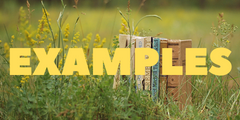Doris Lessing, who won the Nobel Prize in Literature in 2007 for her fiction, infused it with autobiographical elements. Her experiences in Africa were particularly influential. Her works are centered around contemporary themes, such as the clash between cultures, the injustices of racism, and the struggle of opposing forces in an individual’s personality. In “A Sunrise on the Veld”, the protagonist is shown undergoing a transformation from youthful naivety to the wisdom of experience.
This story tells the story of how a young boy, who once believed he was superior to everyone else in the veld, comes to understand how vulnerable and similar he actually is. She shows a great mastery of her craft when she uses the boy as a persona to convey – that life can be unpredictable. Doris’ story is written in the third person and has a complex plot. Lessing depicts a boy who has no name and is a symbol character, but is filled with a vainglorious pride in his mastery of his body.
“He was playing with it because he knew it was something he would be able to defeat easily”His hubris comes through in his belief that he is superior to nature. The boy thought that his brain could even beat it. I am in complete control of my body. The boy recalls:
“He once stayed awake all night to prove his ability, then he would work all day and not admit that he tired. And now, sleep seems like a master to be demanded and refused.” The boy felt invincible and sought out the world, full of excitement and adolescent wonder. The boy, unable to share in the joyous celebration of life, asserted himself by a jubilant attitude and a ecstatic run through the veld. Ironically the boy, like most youths, believed he was an adult with complete control of his own life. The boy himself reflects:
“I’m fifteen!” “I am fifteen !… I can become anything I want to be, and I can do anything I want. I am the universe. It is mine to do with as I please. “I can choose to change what will happen. His exhilarated, happy state is suddenly halted when he discovers a contradiction. He quickly identifies the source of the shrill scream as a mangled deer that looks like:
“a figure that came from a bad dream, an odd beast with horns on its legs and one that looked drunken”
Originality is key!
You’ll receive a custom-written essay on Lessing’s A Sunrise on the Veld (Critical Analysis) written according to your requirements.
Order custom essay
When he has to watch the brutal death of an innocent deer, the boy’s maturity is put under strain by forces beyond his control. It is evident that the boy’s conscience clashes with his actions when he hesitates to end the suffering of the innocent buck. The narrator explains:
“It occurred to him to shoot the animal and put an end to its suffering. It would have been dead if he had not arrived. The boy is forced to confront the truth of his inability to control nature by the conflicting forces that are part of himself. The boy faces the reality of his inability to control the flow of life and interfere with Nature. The boy understands that “things of this nature happen everywhere; they occur all the time. It is the way life moves on; living creatures die in anguish”. The boy finally realizes Nature’s course is set and he cannot change it. This revelation caused a burning pain to erupt in the boy’s body. Unable to control himself, he said:
I can’t do anything about it. It’s impossible to stop. There’s no way I can stop it. It was impossible for him to break free from his connection with the death of this animal. “He found that tears were streaming down the face of his character, and that his clothing were wetted with the sweat caused by the other creature’s anguish.” The boy is shocked to discover that he shares a lot of similarities with the buck. The buck was also euphoric and full of life just like the boy, until its tragic death. The boy wonders what happened to the buck.
“Another hour ago, it was this creature that walked through the bush proudly. It tossed its horns around, frisked a white tail, and walked like kings. …”But suddenly, there was an unplanned death that ruined his beautiful animal. This is when the boy realises that nature has subjugated him. He will, at some point, lose his struggle. The boy is shocked by this realization and admits to his mortality. The boy’s admission is evident in his mutterings to the ants.
“go away. I’m just not your type-at least, not right now. Go away. It is clear that the boy has changed from his haughty superiority to an attitude of stubbornness and immaturity. The boy admits that his actions in the past were cruel. The boy admits that he has also been cruel to innocent animals, like the buck. This painful revelation erases his previous euphoric pride in his own superiority. The boy can no longer face his criminalizing conscience. “He was a kid again, kicking his skeleton with a sulky attitude, hanging on to his head and refusing responsibility.”
Lessing is trying to convey to her readers that life is uncertain. A sudden change in fate can end the fragile existence of a human at any time. The illusion of immortality that humans project is unreal and immature. Assuming that man is immortal is delusional and uncharacteristic. Lessing, through the boy’s medium, forces her reader to realize that Nature has a higher power than mortal and frail men. A man’s life is influenced by forces beyond his control. The best thing a person can do is accept the reality of his life in a stoic way.


